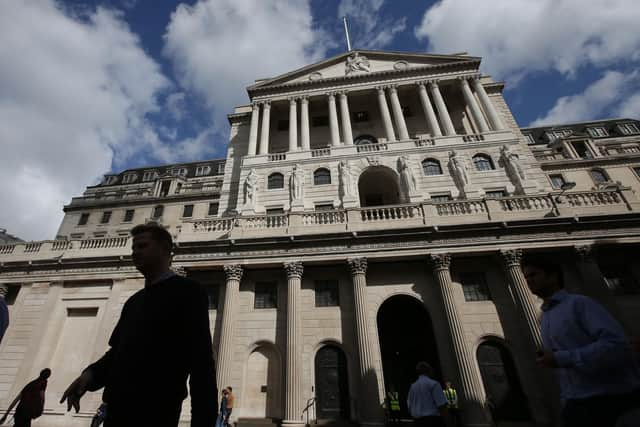Interest rate reaction: Bank of England's inflation obsession could prove painful
A further half-point hike in interest rates by the Bank of England (BoE) marks the ninth increase in a row and takes the bank base rate to 3.5 per cent. This time last year, that rate stood at a record low of just 0.1 per cent.
Savers may see a modest swing in their favour, but for millions of personal and business borrowers saddled with mortgages and loans, the latest increase spells higher monthly payments and budgeting misery.
Advertisement
Hide AdAdvertisement
Hide AdCentral bank policymakers have been eager to get a grip on soaring rates of inflation. Indeed, the BoE has a remit to get consumer price inflation pegged close to 2 per cent. Despite a slight cooling last month, prices are still rising at more than five times that pace annually.


It’s a tricky balancing act for members of the bank’s nine-strong monetary policy committee (MPC) – and cracks appear to be emerging in the decision making. The MPC voted 6-3 in favour of the latest rise, with two members voting in favour of holding rates at 3 per cent and one voting for a 0.75 per cent increase, which would have matched November’s record hike, when a majority of 7-2 voted for an increase.
The bank appears confident it can get a grip on inflation, which is being driven by something largely beyond its control, namely spiralling energy costs. However, fears are growing its obsession with combatting inflation risks pushing the UK economy into a much deeper recession.
Those amber alerts have come from disparate camps. The TUC’s head of economics, Kate Bell, yesterday warned with the economy already in the mire, and the value of everyone’s pay plummeting, the pre-Christmas rate shock “could make a bad situation worse”. Nigel Green, founder of financial advisor deVere Group, said he believes the hike “effectively dashes remaining hopes for a shallower recession”. Gloomy stuff.
Hopes will now be high the BoE is at or close to the end of its monetary tightening cycle as it balances the risk of deeper recession with fears of persistent price rises.
Comments
Want to join the conversation? Please or to comment on this article.